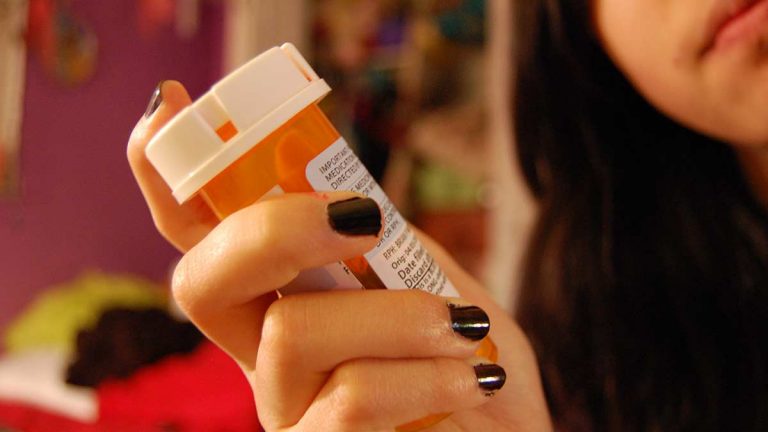Several days ago, I published a piece explaining several reasons why Congress’ current attempt to address the opioid addiction crisis (epidemic is, in my view, entirely the wrong word to use) is inadequate, or even counterproductive. In light of the legislation passed by the U.S. Senate on Wednesday, it’s important not only to understand the limits of the bill, but also to ask a more fundamental question: What should be done instead?
It’s a fair question, although it suffers from the all-too-common assumption that doing “something” is always preferable than doing “nothing,” which to an economist, not to mention a libertarian, is laughable. Nevertheless, it seems clear that, at least in this case, opioid addiction is something that we should be concerned about, and try to mitigate as long as we can do so without violating individual rights. Perhaps unsurprisingly to anyone familiar with libertarian thought, one possible solution might be wholesale decriminalization of the offending drugs.
Before dismissing this idea as insane, take a moment to consider the effects of drug prohibition. Not the intended effects (the elimination of drugs from the market) but the actual effects. The problem with most conventional attempts to solve the problem is that they try to change the behavior of the addict directly, either by bullying, coercing, or harassing drug users into stopping their habit, or by cutting off their supply of preferred narcotic by force. If there’s anything that history has taught us, however, it is that you really can’t stop people from doing what they want to do. You can pass all the laws against opioids that you like, but if someone really wants to take heroin, they are going to find a way to get it.
What, then, is to be done? The situation as I’ve laid it out may appear hopeless, but perhaps it is not as bad as it seems. What if, for example, people do not really want to take heroin at all. Heroin is dangerous, highly addictive, illegal, and in many cases lethal. It seems likely that most people who take the drug do so, not because they like heroin as a product, but because heroin is the cheapest, most readily available substitute for what they really want.
What do addicts really want? In most cases, probably pain relief. In some, a pleasant high or a temporary escape from larger life problems. We know that a large share of people who get addicted to heroin migrate to the drug after being cut off from prescription painkillers, no doubt a combination of physical addiction and desire for continued pain relief.
People seek out dangerous, addictive drugs because there are no safe, non-addictive alternatives that will deliver the desired effect. Doctors get in trouble for overprescribing addictive medications, and perhaps they should, but halting those prescriptions simply drives people to less safe alternatives. And all the alternatives, including most prescription opiates, are extremely powerful. Opiates designed for pain management are powerful because they have to be to deal with kind of crippling pain that some people have to live with. Non-prescription opiates, the illegal kind, are powerful because it’s easier to smuggle concentrated doses of a controlled substance than diluted ones.
It was the same way during the period of alcohol prohibition. Smuggling kegs of Bud Light under the noses of the Feds was impractical, so people drank bathtub hooch, strong bathtub hooch. And since customers could hardly complain to the consumer protection bureau if the product was of bad quality, these potent mixtures would sometimes make you go blind or even kill you. Wood alcohol, after all, is cheaper to make than good whiskey. Forbidding a substance people were going to take anyway drove it underground and made it both more powerful and more deadly.
The story is the same with opiates. If you don’t believe me, check out these real ads for patent medicines that once contained heroin, morphine, and cocaine. Because this was over the counter stuff, the doses were low and while the potential for addiction certainly existed, actual overdoses were not nearly as common as they are today for the concentrated, adulterated versions of these drugs.
The lesson is a simple one: prohibition creates black markets, and black markets are always more dangerous. This applies not just to the takers of the drugs, but to the innocent civilians who end up caught in the crossfire of gang warfare, or those burgled and assaulted by addicts desperate for a fix.
There would doubtless be some harmful consequences of full-scale decriminalization of narcotics, as there is with every sudden policy change, but it’s time for us to take a hard look at the failures of the drug war and the innocent lives lost as a result of the black markets it has created. If we can’t eliminate a harmful substance from society, maybe we should at least think about bringing it into the light, where it can be seen in all its ugliness, and where those who want help won’t have to fear to ask for it.
Some people will still choose to take opiates — a free society can never wholly prevent that — and some will become addicted to them, but the chance of overdose would be lower, the path to recovery easier, and the lives of countless innocents caught up in drug warfare against their wills could be saved. Is that really such a radical proposal?
This article originally appeared on Conservative Review.














Add comment